
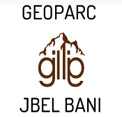
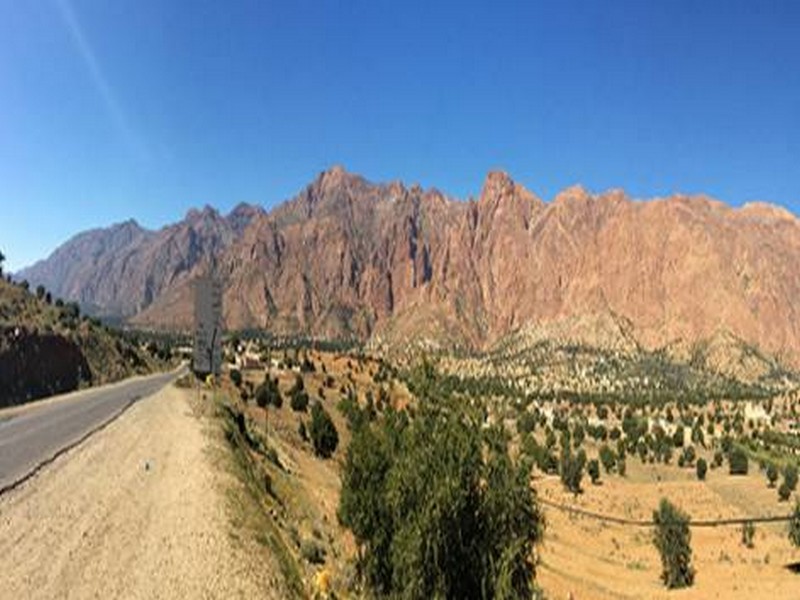
Jebel el Kest: A stunning day in the Moroccan Anti-Atlas
The ascent of Jebel el Kest in Morocco’s Anti-Atlas is a stunning day in remote mountains – one of the very best hill days. Cicerone’s Publisher, Jonathan Williams, explored the area with his son Joe in February 2015..
‘Anergui...’ Chris Bonington’s always-quiet tone dropped a notch as he repeated the name, his eyes seeming to glaze over as though he was remembering big mountains in great ranges. I was impressed. All I’d done was mention this particular approach to the little-known Jebel el Kest in Morocco’s Anti-Atlas. It must be quite a hill. There was clearly a lot to look forward to on our walking and scrambling trip. Over the last twenty years the Anti-Atlas has grown into a remarkable arena for climbers. Massive amounts of rock at good climbing grades, easy access, good prices and great people have all made this area a new home-from-home for a generation of climbers: Les Brown, Joe Brown, Chris Bonington, Claude Davies... all well-known names on the friendly streets of Tafraoute.
A town of 5000 people, Tafraoute is set off to the south of Jebel el Kest, giving it astonishing views to the quartzite range that glows bright pink in the evening light. It’s located in an area the maps refer to as ‘The Granite Area’, full of piles of strangely shaped boulders. There are several hotels and a few restaurants, plenty of shops, pharmacies, a weekly souk, and a small medical centre (with which we had dealings the next day – another story). The French influence is unmistakable; well taught in the schools it’s one of three languages – with Arabic and Berber – spoken throughout Morocco. Those involved in adventures and other trading all have excellent French and a surprising amount of English. And catering to climbers is only one of Tafraoute’s enterprises. It’s a stop-off for the many French who tour around Morocco and into the Sahara, often in sizeable motor homes. This has led it to its development as a major centre for carpet selling, and the two emporia that service this business have become masters of the art. It’s unlikely your resistance is even close to a match for their sales talents, so it’s best just to embrace it. Tafraoute is as a fine place as any to buy a carpet, rug or throw and it will make a valuable contribution to the local economy.
Located about 3 hours’ drive south east of the Atlantic resort of Agadir, a 4-hour flight from the UK, this remote area on the edge of the Sahara desert can be reached inside a day. The drive down is fascinating – remarkably little traffic but a whole new culture with shepherds and flocks crossing the road, towns and Berber villages large and small, roadside water stalls, women in niqab and hijab of all colours, minarets and wild mountain scenery, as well as the inevitable game of chicken as two vehicles pass on the road eroded by the perpetual sun and occasional rain down to a singe track. Winter temperatures are ideal for walking, but the main season is March to April and October into November. In mid-February we had cloudless days up to 20º and night-time temperatures of 8 to 10º – fine Cumbrian summer days.
Jebel el Kest itself is just the highest point in a long and complex ridge extending over 35km and accessible from both north and (more usually) south. There are a few paths – original Berber shepherd trails above the villages – but much of it is trackless. And everything up there is either sharp or spikey.
Pub in May 2015
Source web par cicerone-extra
Les articles en relation
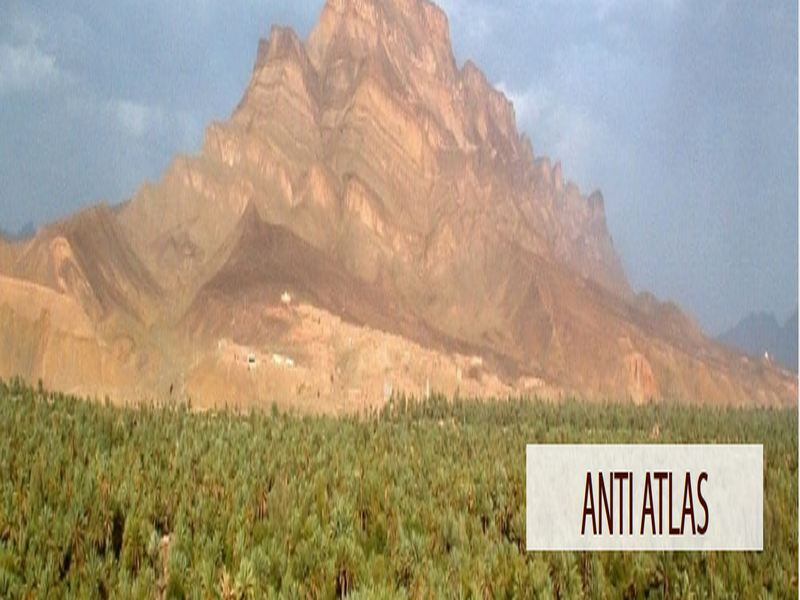
Anti Atlas (Géoparc Jbel Bani)
Anti Atlas (Géoparc Jbel Bani) Découvrir l’Anti Atlas, de l’Atlantique au Tafilalet À la différence du Haut Atlas, l’Anti-Atlas est doté de sommets plus modestes, le Jbel Siroua
Savoir plus...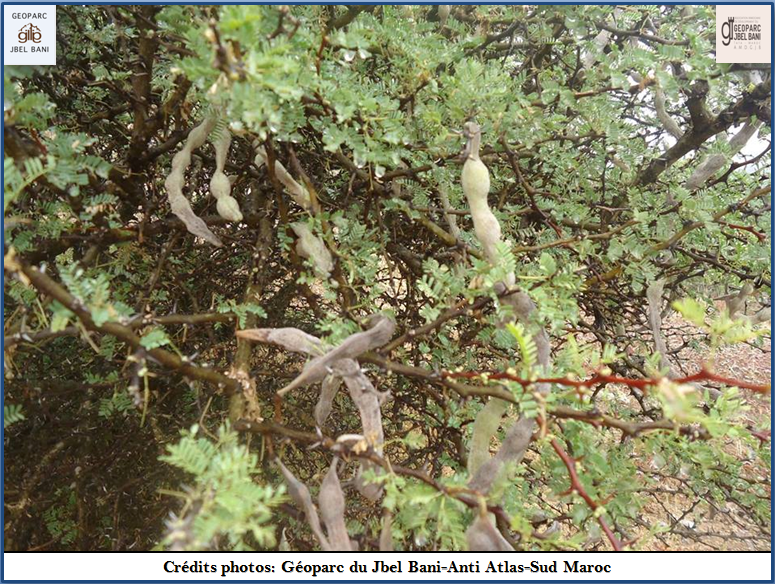
Les accacias du Maroc
Acacias du Maroc Au Maroc, quatre « acacias » existent à l’état spontané: Acacia gummifera, Acacia raddian, Acacia ehrenbergiana et Acacia albida. L’Acacia gummifera « gommi
Savoir plus...
Bilan catastrophique pour le climat en 2016
Bilan catastrophique pour le climat en 2016 Le dernier rapport annuel de la NOAA et de l'American Meteorological Society (AMS) montre que températures, montée des océans et émissions de gaz à ef
Savoir plus...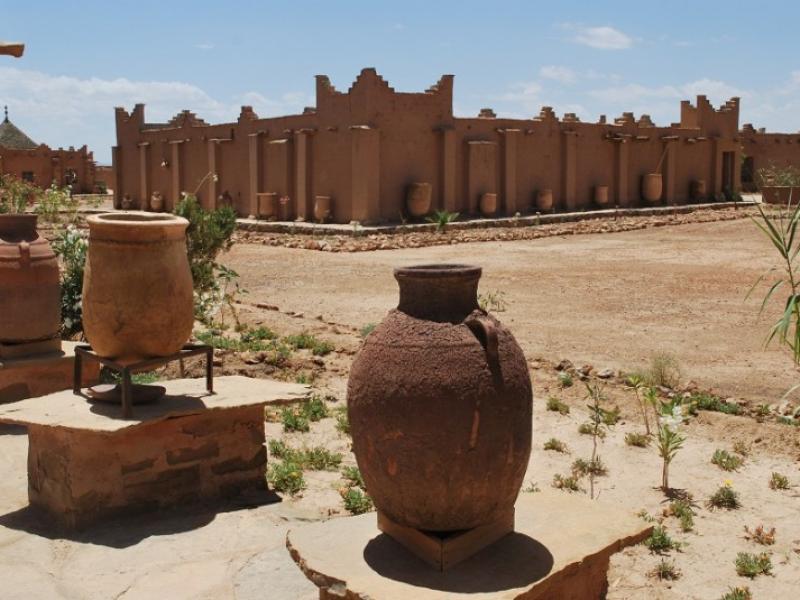
Le patrimoine culturel marocain
Le patrimoine culturel marocain Titre Le patrimoine culturel marocain Le Maroc dispose d'un patrimoine culturel et civilisationel riche et diversifié. Chaque région possède ses particularités, contr
Savoir plus...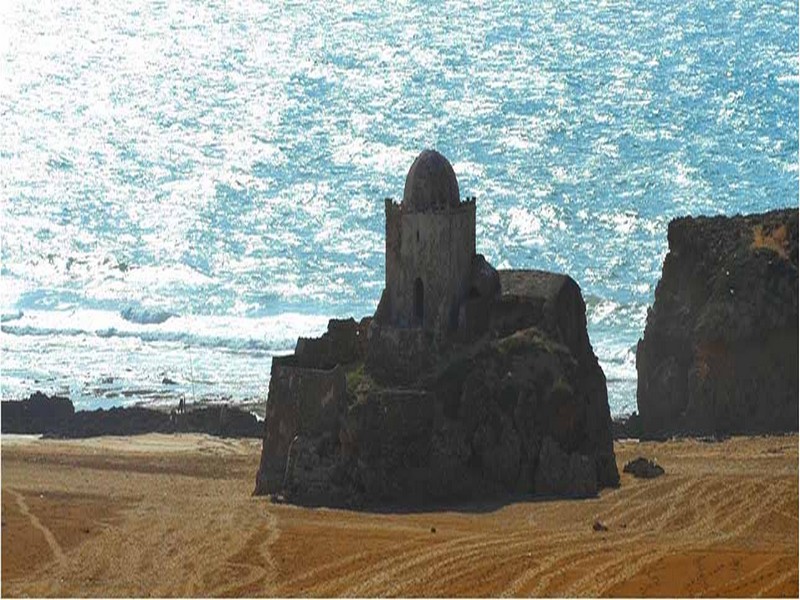
MARABOUT D'IRHERM IGUEZZOULENE (Géoparc Jbel Bani)
MARABOUT D'IRHERM IGUEZZOULENE (Géoparc Jbel Bani) À propos de MARABOUT D'IRHERM IGUEZZOULENE La route qui mène de Guelmim à Taghjicht nous promène dans un Maroc profond et plutôt d
Savoir plus...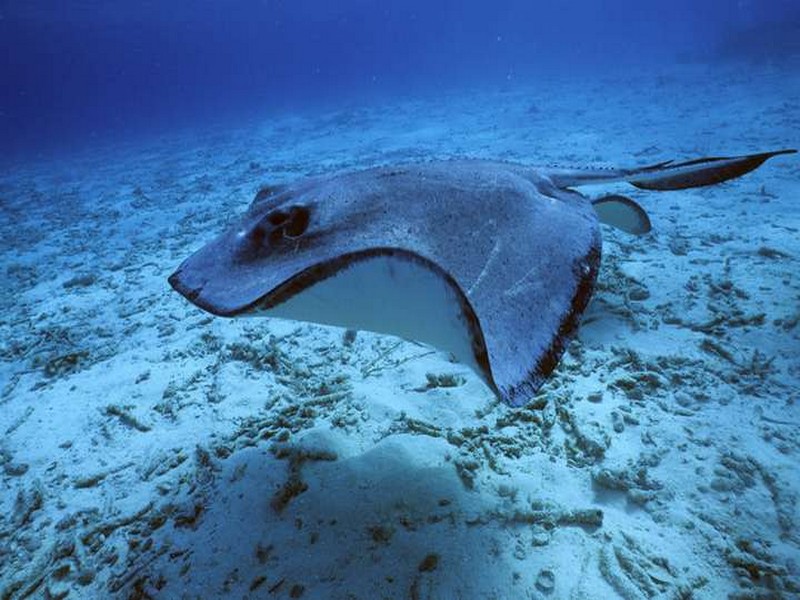
Raie pastenague
Raie pastenague La raie pastenague désigne plusieurs espèces de sélaciens de la famille des Dasyatidés, reconnaissables à une queue en forme de fouet, ce qui leur vaut ce nom. Mangeuses de petits po
Savoir plus...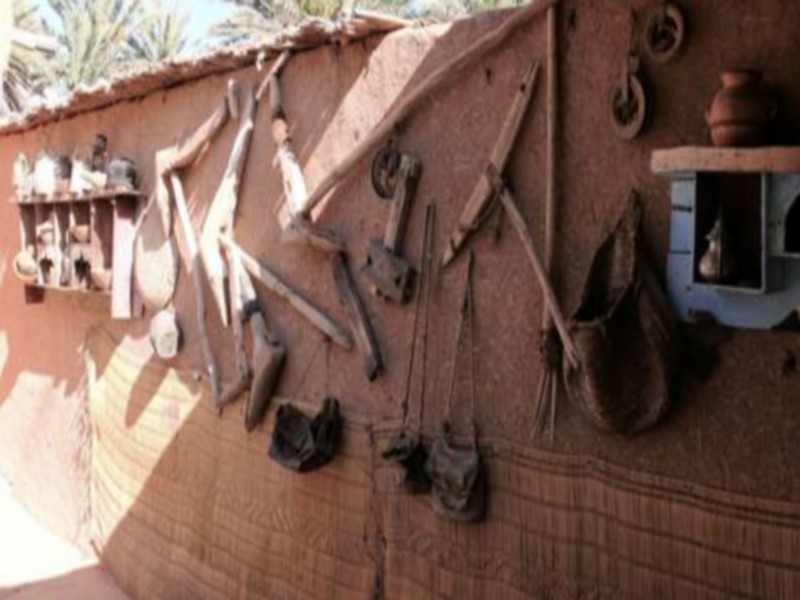
Milieux, techniques et cultures préhistoriques sur la façade sud de l’atlantique au Maroc: régions d’Essaouira et d’Agadir
Milieux, techniques et cultures préhistoriques sur la façade sud de l’atlantique au Maroc: régions d’Essaouira et d’Agadir 1. Intérêt scientifique : La préhistoire d
Savoir plus...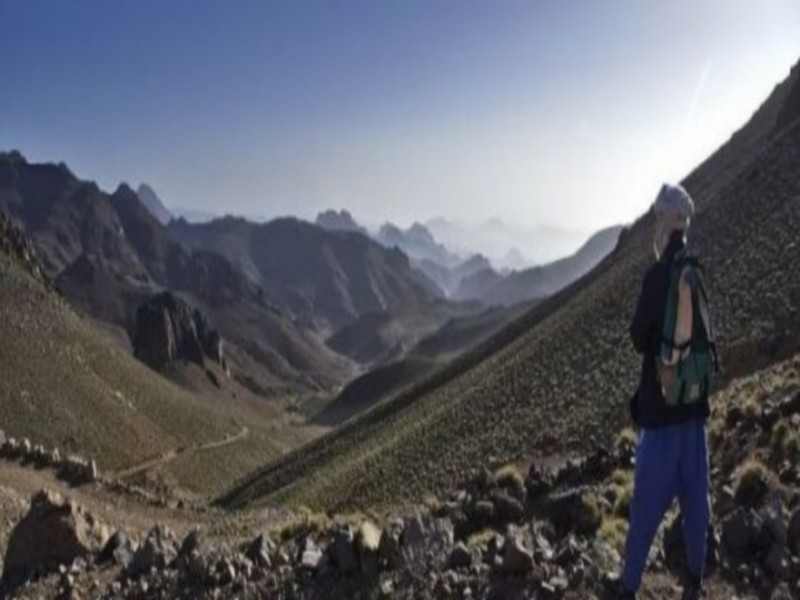
Jbel Saghro, paysage lunaire et fief de la tribu nomade légendaire des Ait Atta
Jbel Saghro offre des paysages à couper le souffle. Un endroit idéal pour faire des randonnées et des trekkings sur plusieurs jours. La région aux roches volcaniques de Saghro est notre volet touristique de l
Savoir plus...
Journée internationale de la prévention des catastrophes
Journée internationale de la prévention des catastrophes «Plus 90% des catastrophes de grande ampleur sont des phénomènes climatiques extrêmes» Instituée par une résoluti
Savoir plus...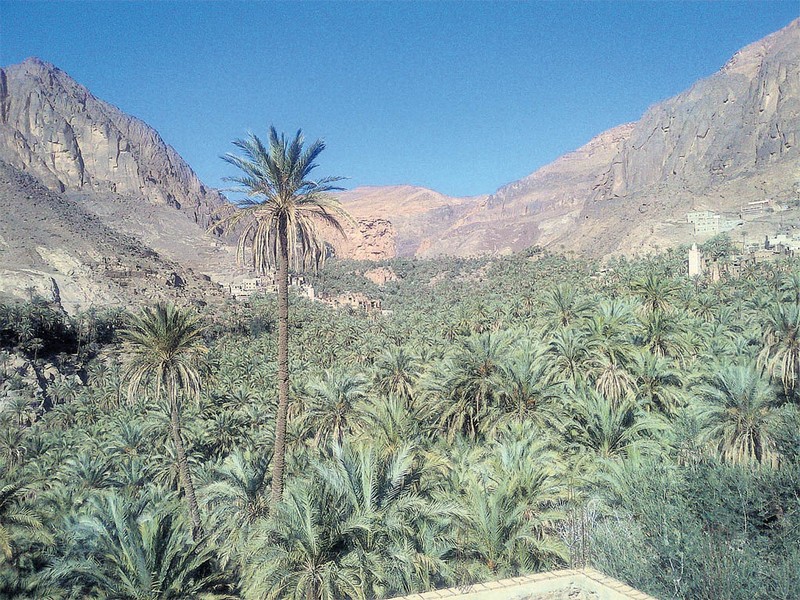
Anti-Atlas: Un PPP pour le «Géoparc» Jbel Bani (Géoparc Jbel Bani)
Anti-Atlas: Un PPP pour le «Géoparc» Jbel Bani (Géoparc Jbel Bani) Le Géoparc Jbel Bani. L’idée de ce projet a démarré d’une rencontre publ
Savoir plus...
Razer Phone 2 : un smartphone de gamers, vraiment ?
Razer Phone 2 : un smartphone de gamers, vraiment ? Le constructeur d'ordinateurs pour joueurs, Razer, lance une nouvelle version de son smartphone ultrapuissant. Dédié fondamentalement aux gamers, il est vendu au t
Savoir plus...Les tags en relation
En savoir plus sur " Montagnes et Anti Atlas "
Consulter les vidéos de " Montagnes et Anti Atlas " Consulter les photos de " Montagnes et Anti Atlas " Consulter les publications de " Montagnes et Anti Atlas " Consulter les éditions de " Montagnes et Anti Atlas " Consulter les communications de " Montagnes et Anti Atlas "Recherche du site
Recherche avancée / SpécifiqueMontagnes Jbel Bani, Jbel Kerst et Anti Atlas
Montagnes et Anti Atlas Caractéristiques des montagnes du Jbel Bani Jbel Bani et Jbel Kesrt
Géoparc et Recherche Scientifique
Le coins de l’étudiant
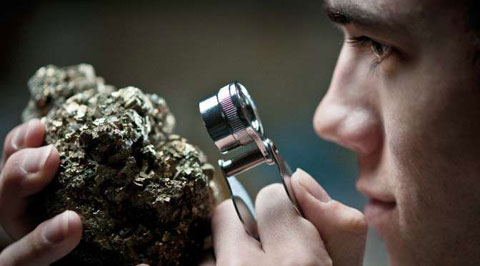

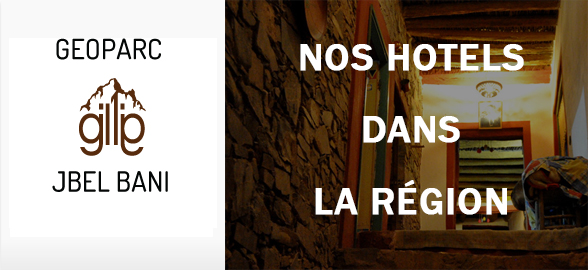
Blog Géoparc Jbel Bani
Dictionnaire scientifique
Plus de 123.000 mots scientifiques
Les publications
Géo parc Jbel Bani
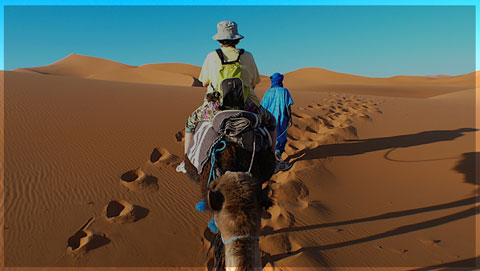
Circuits & excursions touristiques
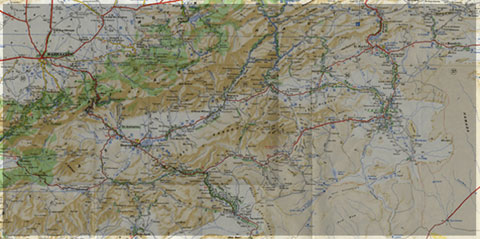
cartothéques
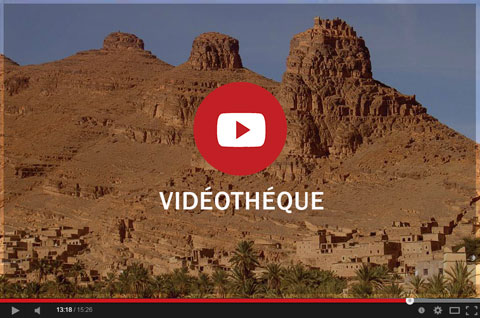
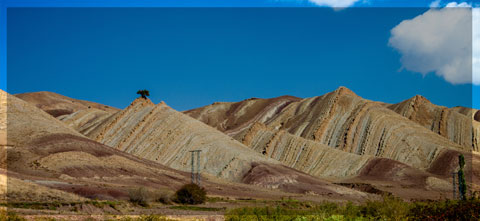
Photothéques
Publications & éditions



